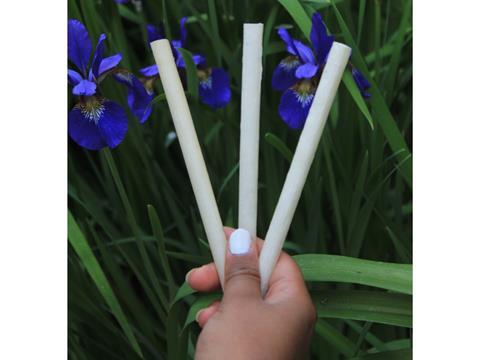
In the latest of our series of interviews with finalists of our Sustainability Awards, which will be unveiled during the Sustainable Packaging Summit in Utrecht in November this year, we hear from Paramount Planet Product, a finalist in the pre-commercialized Climate category, about their biodegradable alternative to conventional plastic and coated paper straws.
You’re a finalist in the Sustainability Awards 2025. Congratulations! To start off, could you summarize your entry, in less than 50 words?
Our robust, nano-cellulose straw, created with a collapsible mandrel technique, offers a plastic-free future. Free from synthetic binders and coatings, it’s a scalable, fully biodegradable alternative to conventional plastic and coated paper straws. Its environmental benefits are not just a promise, but a reality.
Why do you think the judges were impressed with your entry? Tell us about what is innovative about your project and/or about its impact on packaging sustainability?
The entry demonstrates a material and processing innovation that addresses the performance limitations of current biodegradable straws. While most alternatives incorporate polymeric coatings or composite structures that hinder complete biodegradability, our straw is fabricated solely from nano-cellulose. This product ensures complete environmental compatibility, eliminating concerns about microplastics. The collapsible mandrel fabrication method enables the formation of seamless, hollow geometries with mechanical integrity and reproducibility, eliminating the need for adhesives or heat-based bonding steps. This advancement not only solves long-standing challenges in nano-cellulose forming but also introduces a viable route for upscaling high-performance cellulose-based single-use products.
Finally, can you tell us about the ongoing development of your project, e.g. how your innovation/initiative has been received by industry, or what are the next steps in commercialization/product development?
Our journey doesn’t end here. We are committed to continuous improvement and innovation. Our current development efforts are focused on process scalability, material throughput optimization, and performance benchmarking under real-world conditions. The fabrication process is being adapted for semi-continuous production, and mechanical and functional properties are being evaluated against commercial standards for consumer use. Industry interest has been growing, particularly among sustainable packaging manufacturers and fast-moving consumer goods companies. Regulatory evaluations for food-contact safety are underway, and collaborations are being sought for pilot-scale deployment. Additionally, the core forming technique is being extended to other three-dimensional geometries, enabling broader applications in biodegradable packaging and single-use items made from pure nano-cellulose. We are confident in our next steps and look forward to the future.
The winners of the Sustainability Awards 2025 will be announced at the Sustainable Packaging Summit, taking place in Utrecht on 10-12 November. The Summit mobilizes leaders of the FMCG value chain, policymakers, NGOs, recyclers and investors to collaborate, remove barriers and identify opportunities on the road to sustainable transformation.
To learn more or register, visit: https://www.packagingsummit.earth/2025
If you liked this story, you might also enjoy:
The ultimate guide to the Packaging and Packaging Waste Regulation in 2025
How are the top brands progressing on packaging sustainability?
Everything you need to know about global packaging sustainability regulation in 2025
The key to increasing the use of reusable packaging in supermarkets














No comments yet